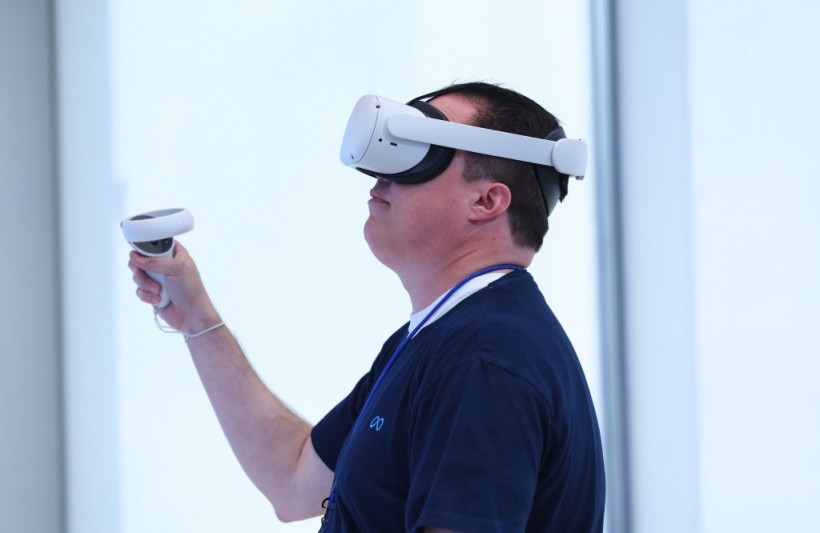Virtual reality (VR) headsets can spell a privacy disaster when combined with artificial intelligence (AI) according to the researchers.
In the latest study, a group of experts uncovered how the machine learning assist makes it easier to invade a person's privacy in an instant.
VR Headsets Can Known More About You

Researchers have uncovered an alarming truth when virtual reality and artificial intelligence combine in a VR headset.
A team of researchers from University of California, Berkeley unveiled that AI can accurately predict personal information such as height, weight, age, and even marital status by analyzing the movements of users immersed in VR experiences, per Bloomberg.
What is striking is that this data is derived without users explicitly sharing these personal details, sparking a thought-provoking discussion around potential privacy breaches.
Among the remarkable findings, the Berkeley study demonstrated an impressive accuracy of over 94% in identifying a particular individual among a pool of 50,000 VR users based on just 200 seconds of motion data.
Another noteworthy research project revealed that a person's height, weight, foot size, and home country could be accurately determined with an accuracy rate surpassing 80%, using data from players of the popular VR game "Beat Saber."
Surprisingly, personal characteristics like marital status, employment status, and even ethnicity could be predicted with more than 70% accuracy.
Related Article: Meta Debuts All-New $499 Quest 3 VR Headset Bound for Fall 2023 Launch
How VR and AI Are Connected
The underlying mechanism involves a machine learning model that scrutinizes the data captured by VR headsets, such as eye and hand movements, per Game is Hard.
According to lead researcher Vivek Nair, the model effectively decoded various movement patterns to discern characteristics like age, gender, ethnicity, and country of origin.
Furthermore, the model's ability to extrapolate more nuanced information, such as income level, health status, disabilities, and even political inclinations, is both impressive and thought-provoking.
This revelation introduces significant privacy considerations, as VR headsets capture data beyond the realm of traditional websites or applications. They delve into unique aspects like a user's gaze, body language, body proportions, and facial expressions, unveiling unparalleled insights that expand the realm of data privacy discussions.
Meta, for instance, which has been famous for its Quest 2 VR headset, has been relying on the power of AI to store user's information in the database. This is usually used in ads.
While their intention is to enhance user experience, the extent to which VR data is utilized for this purpose remains a subject of inquiry.
To address these concerns, the tech giant has taken steps to offer users privacy controls, such as the option to secure avatars, profile pictures, names, and usernames. Additionally, they assure users that data stored on their servers will be dissociated from individual accounts once its purpose is fulfilled.
Human Privacy is Still an Area of Priority
Navigating privacy in the realm of VR headsets presents novel challenges compared to traditional platforms. Experts have proposed potential solutions, including data encryption and limitations on stored information. However, the intricate relationship between technology advancement and user data underscores the complexity of the issue.
The existing gap in public awareness regarding VR data collection and privacy controls necessitates a collaborative effort between industry players, researchers, and users to establish transparent standards.
In an era where AI and VR are unlocking new dimensions of human experience, safeguarding personal privacy remains a crucial priority.
By fostering a comprehensive understanding and implementing robust privacy measures, society can harness the potential of AI and VR while ensuring user data remains secure and respected.
Read Also: Meta Quest VR Improvements Include Hand Tracking and Live Captions









